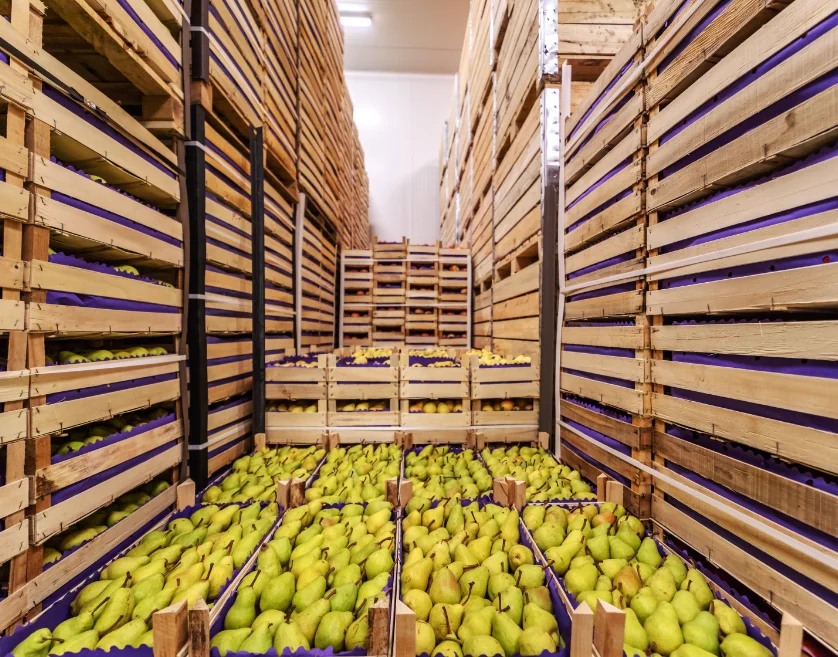The Importance of Food-Grade Warehousing

Introduction to Food-Grade Warehousing
In an era where the safety and quality of food are paramount, the significance of food-grade warehousing cannot be overstated. As consumers increasingly demand transparency and assurance about the products they consume, the role of these specialized warehouses has become crucial in the global food supply chain. This article delves into the various facets of food-grade warehousing, underscoring its importance in maintaining food integrity, ensuring safety, and enhancing supply chain efficiency.
Understanding Food-Grade Warehousing
Definition and Scope
Food-grade warehousing refers to the storage facilities designed specifically for handling and storing food products. These warehouses adhere to stringent standards of cleanliness, temperature control, and pest management, ensuring that food products remain safe and unspoiled throughout their shelf life. Unlike conventional storage facilities, food-grade warehouses must comply with rigorous regulations set by authorities like the FDA and USDA, making them integral to the food distribution network.
Historical Evolution
The evolution of food warehousing from traditional storage practices to today’s specialized facilities reflects the growing complexity of food distribution and heightened consumer awareness. Initially, food storage was simplistic, focusing merely on keeping products dry and cool. However, as the global food trade expanded and regulatory bodies imposed stricter standards, the need for specialized warehousing emerged.
Legal and Regulatory Framework
Food-grade warehousing operates within a complex legal framework, complying with national and international standards. Regulations ensure that these facilities maintain conditions that prevent food contamination and spoilage. Regular audits and inspections are conducted to certify warehouses for food-grade compliance, making adherence to these standards a top priority for warehouse operators.
Why Food-Grade Warehousing is Crucial
Ensuring Food Safety
The primary role of food-grade warehousing is to safeguard food safety. By controlling factors like temperature, humidity, and hygiene, these warehouses play a critical role in preventing foodborne illnesses and spoilage. Case studies have shown that lapses in warehousing can lead to significant public health concerns, highlighting the critical nature of these facilities in the food supply chain.
Supply Chain Efficiency
Efficient food-grade warehousing contributes significantly to the optimization of the supply chain. By streamlining storage and distribution processes, these warehouses reduce wastage, cut costs, and ensure timely delivery of products. This efficiency is crucial in a world where food demand is constantly rising, and supply chains are increasingly globalized.
Meeting Consumer and Market Demands
Today’s consumers are more health-conscious and informed about their food choices. Food-grade warehouses play a vital role in meeting these evolving demands, ensuring the quality and safety of food products from farm to table. They also adapt to global food trends, storing a wide variety of products to cater to diverse dietary preferences and needs.
Key Features of High-Quality Food-Grade Warehouses
Infrastructure and Design
The design of food-grade warehouses is geared towards maximizing safety and efficiency. Features like temperature and humidity control systems, contamination prevention measures, and clean and well-maintained facilities are standard. These design elements ensure that we store food products under optimal conditions, reducing the risk of spoilage and contamination.
Technology Integration
Modern food-grade warehouses are increasingly integrating technology to enhance efficiency and accuracy. Automation, artificial intelligence, and advanced inventory management systems are being employed to streamline operations, reduce errors, and provide real-time tracking of products.
Staff Training and Expertise
Qualified personnel are essential for the effective management of food-grade warehouses. Regular training and education programs ensure that staff are knowledgeable about the latest standards, technologies, and practices in food safety and warehousing.
Challenges and Solutions in Food-Grade Warehousing
Managing Regulatory Compliance
Navigating the constantly evolving regulatory landscape is a significant challenge for food-grade warehouses. To manage this, many facilities implement robust compliance strategies and invest in regular training and updates on regulatory changes.
Environmental Concerns and Sustainability
Sustainability is increasingly a focus area, with warehouses adopting green practices like energy-efficient systems and waste reduction measures. These practices not only help protect the environment but also resonate with the eco-conscious consumer.
Adapting to Market Changes
The ability to adapt to market shifts is crucial for the long-term success of food-grade warehouses. Flexibility in operations and scalability in storage capacities enable warehouses to respond effectively to changing market demands.
Future Trends in Food-Grade Warehousing
Technological Advancements
The future of food-grade warehousing is likely to be shaped by technological innovations. Emerging technologies such as IoT, blockchain, and advanced robotics are expected to transform warehousing operations, making them more efficient, transparent, and responsive.
Shifts in Consumer Behavior
Anticipating and adapting to future consumer trends is essential for food-grade warehouses. As consumer preferences evolve, these facilities will need to be agile and responsive to meet new demands and expectations.
Globalization and Food Warehousing
The globalization of the food market presents both challenges and opportunities for food-grade warehousing. Warehouses will need to adapt to handle a broader range of products and comply with international standards, enabling them to play a key role in the global food supply chain.
Why Choose SWS Forward for Your Food-Grade Warehousing Needs
Commitment to Excellence
At SWS Forward, our commitment to excellence is at the forefront of everything we do. We understand that the warehousing of food products is not just about storage but is a crucial part of maintaining the integrity and safety of the food supply chain. Our state-of-the-art facilities and processes are purpose-built to meet and exceed industry standards, storing your products in the safest and most efficient manner possible.
Advanced Technology and Infrastructure
We have invested heavily in advanced technology and infrastructure to provide top-notch food-grade warehousing services. Our warehouses possess the latest in temperature and humidity control systems, contamination prevention measures, and clean, well-maintained environments. This commitment to technology not only improves the quality of storage but also enhances the traceability and accountability of your products.
Expertise and Specialized Knowledge
Our team at SWS Forward is composed of industry experts with years of specialized knowledge and experience in food-grade warehousing. Regular training and education ensure our staff are up-to-date with the latest regulations, technologies, and best practices. This expertise is invaluable in navigating the complexities of food storage and distribution, providing you with peace of mind that your products are in capable hands.
Customized Solutions
We recognize that every client has unique needs. SWS Forward prides itself on providing customized warehousing solutions that cater specifically to the requirements of your products. Whether it’s adapting to specific temperature needs, handling unique product sizes, or managing special distribution channels, we tailor our services to meet your exact needs.
Regulatory Compliance and Safety
Navigating the regulatory landscape of food-grade warehousing can be challenging. SWS Forward stays ahead of the curve in regulatory compliance, adhering to national and international standards set by bodies like the FDA and USDA. Our rigorous compliance protocols and regular audits ensure that we not only meet but exceed these standards, guaranteeing the safety and quality of your products.
Speak to our team today for more information.



